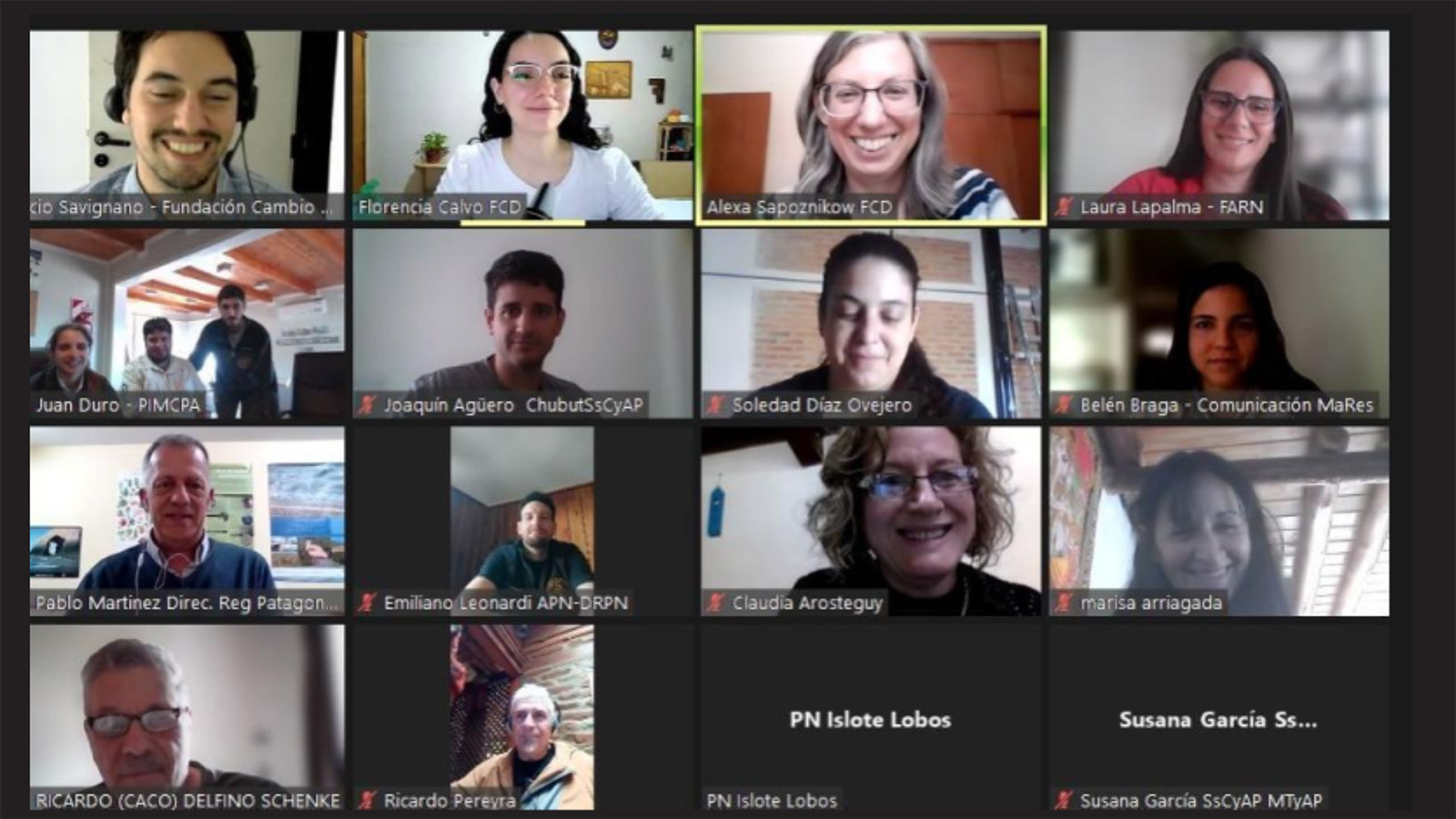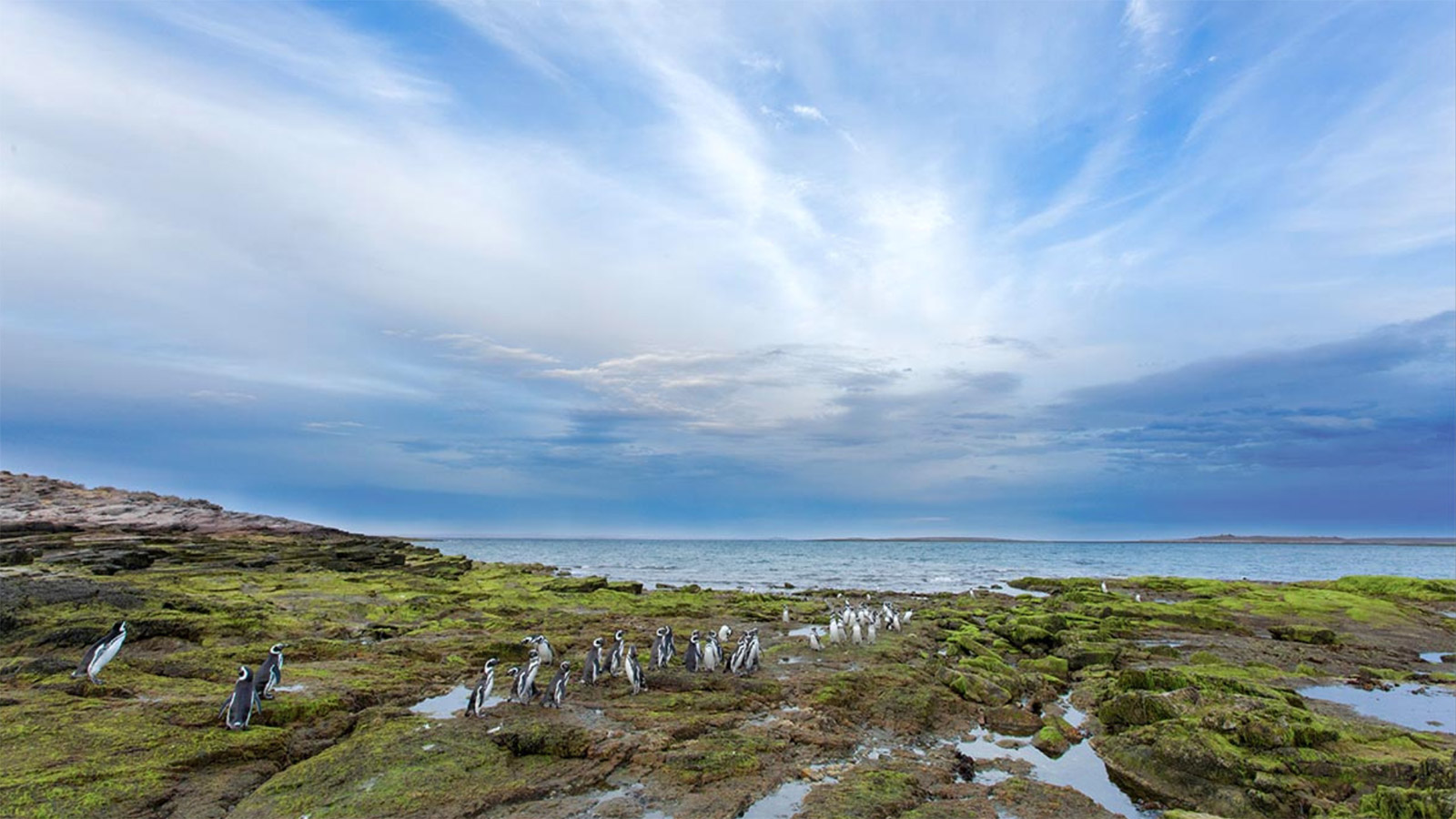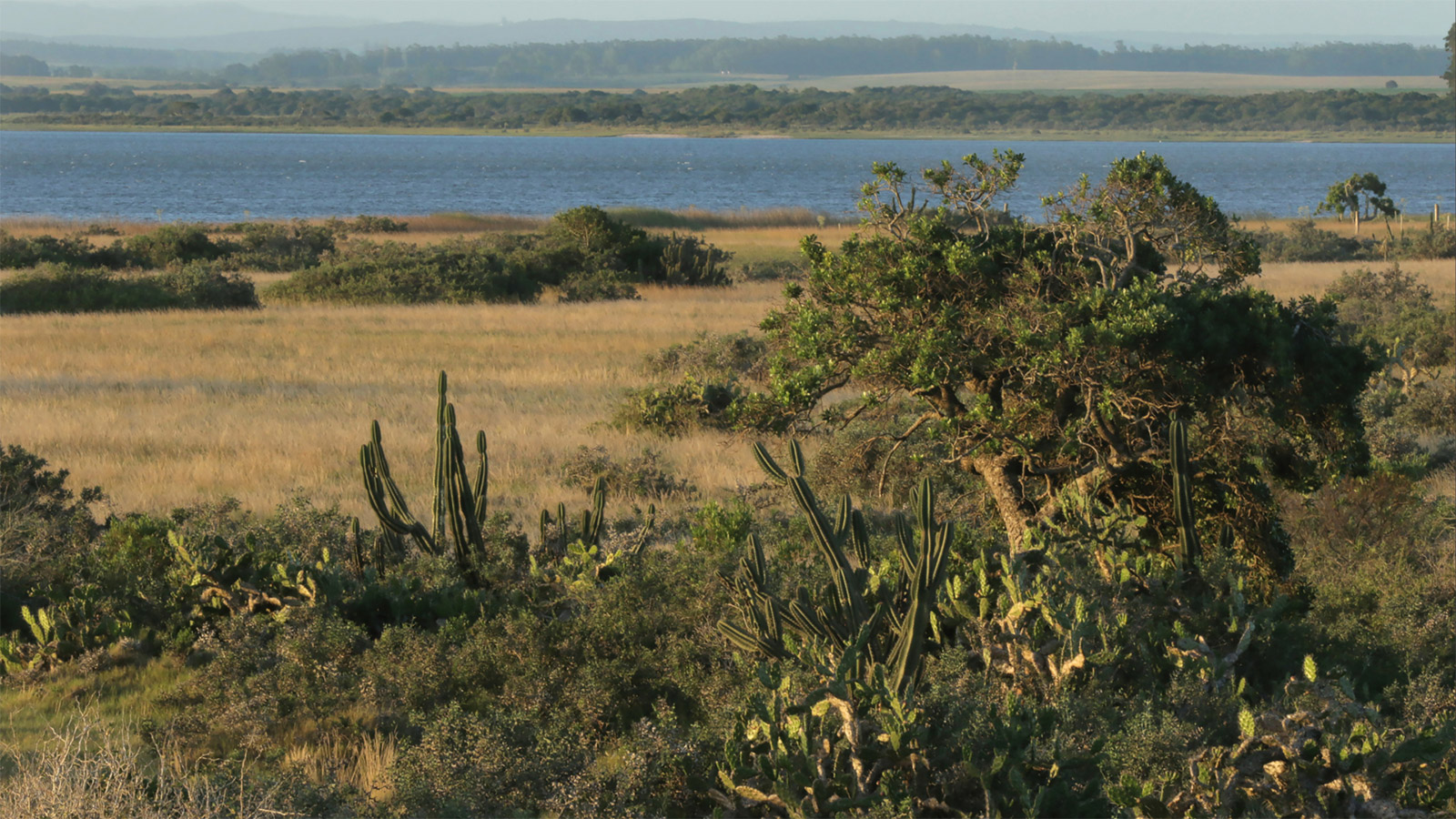
The activity was held in virtual format on November 22 and was facilitated by the Fundación Cambio Democrático (FCD) and the Fundación Ambiente y Recursos Naturales (FARN), organizations that are part of the “MaRes Project to strengthen the resilience of Argentina’s coastal and marine areas”, coordinated by the Forum for the Conservation of the Patagonian Sea and Areas of Influence, and financed by the European Union. It was supported by the National Parks Administration (APN), the Ministry of Environment and Sustainable Development Control of the Province of Chubut (MAyCDS) and the Ministry of Tourism and Natural Protected Areas of Chubut.
Andrés Fernandez Grandi, director of the Laguna Garzón Habitat and/or Species Management Area of the Uruguayan Ministry of the Environment, gave a lecture during the conference. Representatives from the National Parks Administration (APN), particularly from the Southern Patagonia Interjurisdictional Coastal Marine Park (PIMCPA), the National Directorate of Marine Protected Areas and the Northern Patagonia Regional Directorate, the Undersecretariat of Conservation and Protected Areas of the Province of Chubut (SCyAP) and the Ministry of Environment and Sustainable Development Control of the Province of Chubut (MAyCDS) participated in the meeting.
The meeting facilitated dialogue and reflection on current needs and capacities for the effective implementation of participatory processes in marine coastal protected areas in Patagonia.
Escazú Agreement, a tool for strengthening the management of marine coastal protected areas
Citizen participation in environmental decision-making processes is a fundamental element for the construction of more efficient and permanent solutions. In the field of protected area management, the inclusion, from the initial planning stages, of representatives, both institutional and organized groups of local communities or residents within the protected area, facilitates the identification of needs and opportunities for local development. This inclusive approach allows for a transparent and inclusive evaluation exercise, contributing significantly to improving the efficiency of protected area management.
The Escazú Agreement is a binding instrument for the Latin American and Caribbean region, aimed at promoting and improving the rights of all people to access environmental information, to public participation in decisions that affect them, and to guarantee access to environmental justice, with a particular focus on the defenders of nature.
Within this framework, the MaRes Project proposes to improve information access platforms and optimize participation processes in management areas to strengthen the adaptive management of Marine and Coastal Protected Areas (MCPAs).
Dialogue and shared learning
During the meeting, the theoretical framework was presented, highlighting the principles of the Escazú Agreement and its relevance in the context of MCPAs management. Subsequently, Andrés Fernández shared the case “Lessons learned and challenges related to participation for the Laguna Garzón protected area in Uruguay”, which provided enriching experiences and lessons learned on the creation and implementation of a citizen participation mechanism in the context of the design and implementation of the Management Plan for this protected area.
In a second block, the participants organized themselves into working groups to reflect and discuss the current needs and capacities of their respective work teams based on two questions that triggered the dialogue: What are the challenges or problems in accessing and disseminating relevant public information for the effective management of MPAs? And what are the challenges or problems in participating in or leading participatory processes, both in the management of internal teams and in dialogue with other stakeholders?

Main findings in relation to access to information and participatory processes
Participants highlighted the importance of disseminating the rights of access to information among citizens, recognizing its relevance for public management. They stressed the need to adapt the dissemination of information to different audiences, promoting accessibility and designing mechanisms to improve the fluidity of information management. They also identified the importance of the practical application of the Escazú Agreement, with specific guidelines for each public agency, including the identification of actors, publication of information and dissemination on various platforms.
In relation to the development of participatory processes, the importance of strengthening leadership and facilitation capacities was highlighted, as well as the need to institutionalize internal team communication. With regard to institutions and governance, the identification, understanding and articulation among stakeholders and viable mechanisms adapted to each stage of the planning cycle are key to enable effective participatory processes for the management of MPAs. The importance of incorporating interculturality to guarantee an inclusive and integrating approach was also highlighted.
Alexandra Sapoznikow, a member of the facilitating team, emphasized that “The meeting was well attended by government agencies involved in the management of MPAs, and allowed us to understand their main concerns, interests and needs to carry out effective participatory processes”.

Conclusions and next steps
The webinar made it possible to take the first steps to introduce the guidelines of the Escazú Agreement as a tool to promote participation and accessibility of environmental information. In addition, through group exercises and the dynamics of facilitation, it allowed to discover and share the participants’ perception of how participatory processes can be valuable tools for management and to address interculturality.
The results of this exchange provide a basis for designing training for next year, providing an initial diagnosis of strengths and opportunities to ensure the successful implementation of participatory processes in the management of marine coastal protected areas in Argentina.


